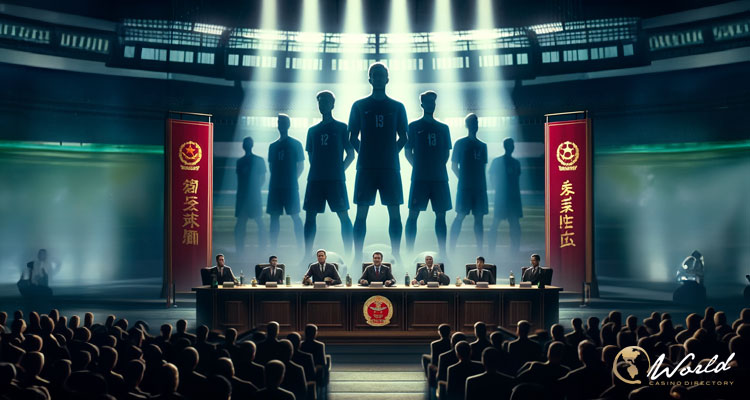The Chinese Football Association (CFA) has issued life bans to 43 individuals involved in a widespread match-fixing and corruption scandal, in one of the country’s most significant football investigations to date. The banned individuals include former Chinese internationals Jin Jingdao, Guo Tianyu, Gu Chao, and South Korean player Son Jun-ho, marking a turning point in the CFA’s efforts to clean up the sport.
At a press conference in Dalian on Tuesday, Zhang Xiaopeng, a senior official from China’s Ministry of Public Security, cited by Xinhua, revealed details of a two-year investigation that implicated 120 matches, 128 criminal suspects, and 41 football clubs. The probe uncovered extensive online gambling, match-fixing, and bribery within Chinese football leagues. Zhang stated: “The Ministry of Public Security reported the details of the first batch of 61 people involved in the cases to the General Administration of Sport of China and the CFA.”
As a result of the investigation, 44 individuals face criminal penalties, with 43 of them now banned for life from participating in football-related activities. The bans apply to both players and club officials. In addition to these lifetime bans, 17 others have received five-year bans for their involvement in bribery and match-fixing.
High-Profile Players Among Those Banned
The life bans include 38 professional players and five club officials, while the five-year bans affect 15 players and two officials. Notably, South Korean international Son Jun-ho, a former player for Shandong Taishan FC, was singled out for his role in manipulating matches. The CFA described his actions as “seriously violating sports ethics and sportsmanship, causing significant negative social impact.”
Another foreign player, Ewolo Donovan of Cameroon, who previously played for Heilongjiang Ice City, was also handed a five-year ban. Both players were part of a growing trend of foreign talent joining Chinese clubs in recent years, drawn by lucrative salaries. Their involvement in the scandal has further marred the reputation of Chinese football.
The CFA is working closely with international organizations to determine if additional actions will be taken against the banned individuals. Song Kai, the president of the CFA, emphasized the importance of enforcing these bans across the football industry to maintain integrity. “The CFA has reported this case once again, and we urge the entire football industry to strictly enforce the ban,” he stated.
A Dark Chapter in Chinese Football
This investigation is part of China’s broader crackdown on corruption within football. The sport in China has long been plagued by underperformance and governance issues, despite President Xi Jinping’s ambitions to elevate the nation to football superpower status. Xi’s government has invested heavily in building football infrastructure and hiring foreign coaches and staff, according to the Associated Press, but the men’s national team continues to struggle on the international stage.
In the midst of the match-fixing revelations, China’s national team suffered a humiliating 7-0 loss to Japan in the third round of Asian qualifying for the 2026 FIFA World Cup. This defeat underscores the ongoing challenges facing Chinese football. The country remains ranked 87th in the latest FIFA world rankings, and its prospects of qualifying for the expanded 48-team 2026 World Cup remain uncertain.
Despite the disappointment, there is hope that by cracking down on corruption, the CFA can rebuild its reputation and foster a more competitive environment. Zhang Xiaopeng reiterated that the investigation will continue, with authorities determined to rid the sport of illegal activities. He also stressed the importance of cooperation with law enforcement agencies to crack down on illegal online gambling operations, which have been linked to match-fixing.



